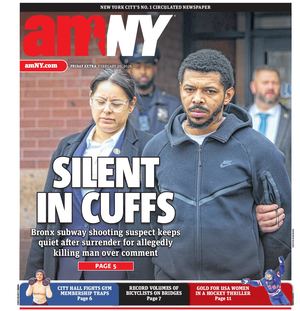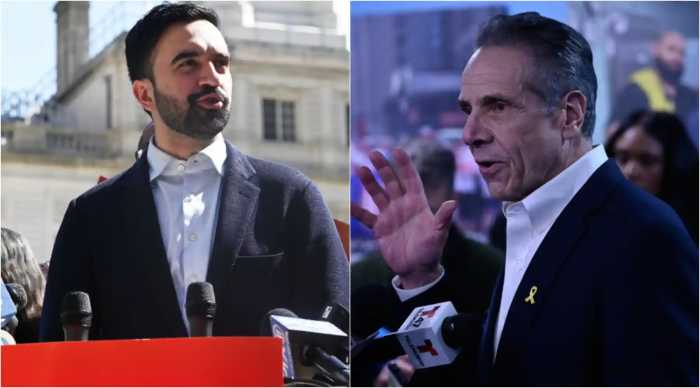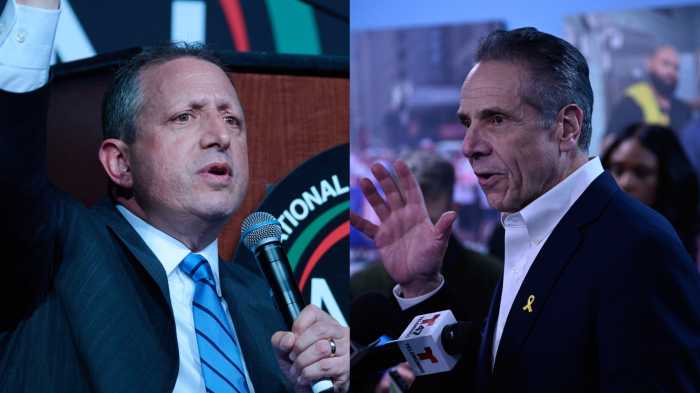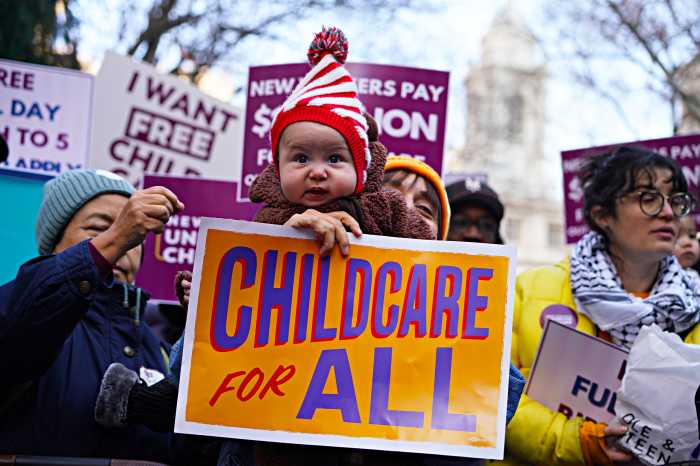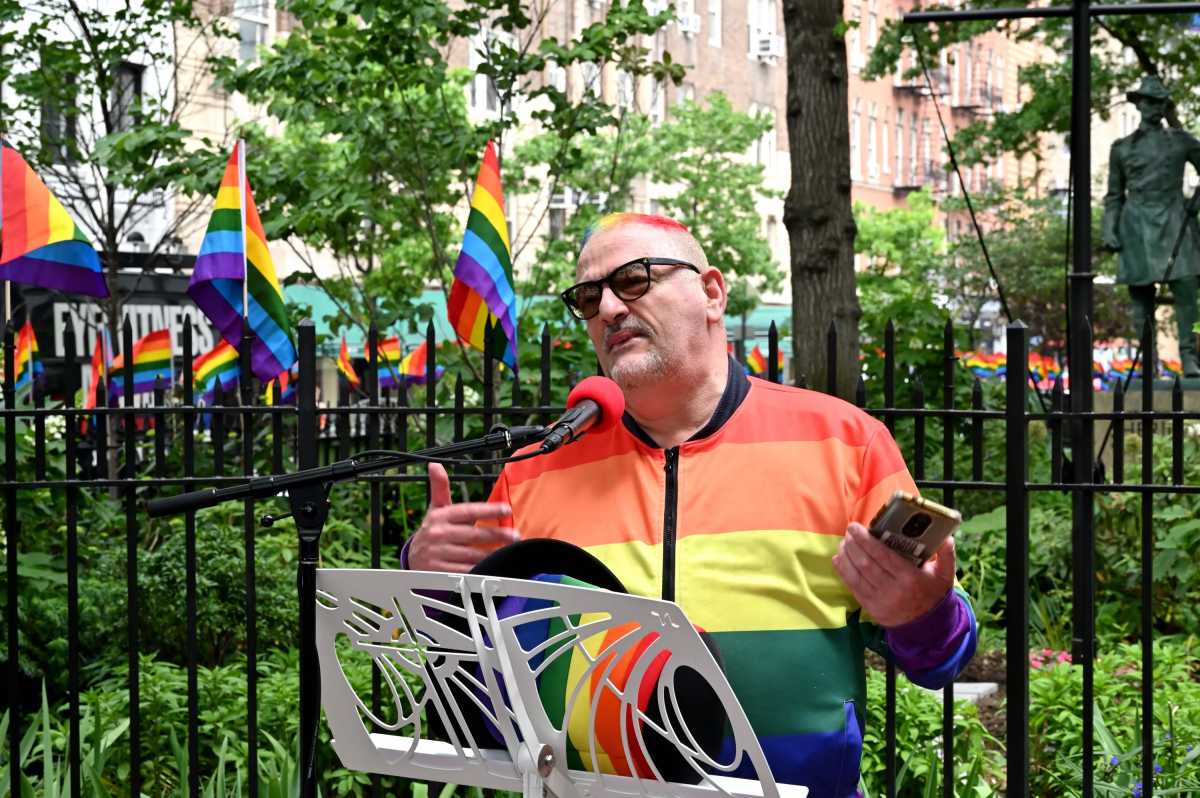In the first debate for this year’s city Comptroller Democratic primary, Brooklyn City Council Member Justin Brannan sought to close the polling gap between himself and front-runner Mark Levine by launching broadsides against the Manhattan borough president over his stance on Mayor Eric Adams, but the two candidates appeared aligned on most issues.
Throughout the hour-long program, the two candidates, the only ones in the four-way race who qualified for the debate stage, traded barbs over their respective approaches to the scandal-scarred Mayor Adams and how they would take on President Trump. However, there was very little daylight between them on most other topics, ranging from using the city’s pension funds to build affordable housing and auditing the NYPD’s overtime use.
The debate was hosted by Pix11 and the city Campaign Finance Board and was co-sponsored by Schneps Media — the parent company of amNewYork.
The clash followed a Wednesday Emerson College/Pix11/The Hill poll that showed Levine leading with 37% of voters listing him as their first choice, while Brannan trailed with 17%. However, the survey also revealed that 29% of voters are still undecided with the June 24 primary less than a month away.
While comptroller is a crucial citywide position charged with managing the Big Apple’s five municipal pension funds, auditing city agencies’ spending and performance, and providing oversight of the city budget, it is not well known to most New Yorkers. This year’s heated comptroller primary has largely been overshadowed by the crowded mayor’s race, in which current Comptroller Brad Lander is participating.
Near the outset of the debate, Brannan — a combative pol from southern Brooklyn — painted himself as the only candidate with the “guts” to stand up to Trump because of his experience tangling with Adams. He argues that is something Levine has not done.
“I’m the only one in this race that has spoken up and fought against this mayor,” Brannan said. “We need a fighter in this moment, Donald Trump is coming for us, New York City is in his crosshairs.”
Brannan invoked his three plus years as council Finance Chair, where he has fought Adams’ deep budget cuts. He also pointed to his own call for the mayor to resign after being federally indicted in September. At the same time, Brannan contended “Mark Levine was nowhere to be found” both after Adams was charged and when the Trump Justice Department moved to dismiss the case in what many view as a quid-pro-quo between top DOJ officials and Adams’ attorneys.
“If you can’t even stand up to Eric Adams, how are you going to stand up to Donald Trump?” Brannan asked.
Levine did issue a post on social media the day after Adams was indicted saying he “needs to seriously consider” staying in his position but has not explicitly called on him to step down.
The Manhattan beep, who has a more reserved style, tried to get ahead of Brannan’s main line of attack early on, outlining several times where he feels he did criticize Adams.
“I stood up to Eric Adams again and again and again,” Levine said. “I’ve taken him on, on COVID, on his rhetoric on migrants, on his cuts to parks. I’ve called him out for his corruption. I’ve sounded the alarm when he was compromised by Trump. I have took on this mayor, and I will take on the next mayor.”
Levine also sought to turn the tables on Brannan by highlighting the council member’s past political alliance with Adams. The borough president referenced Brannan endorsing Adams’ first run for City Hall in 2021 and receiving the mayor’s backing during his own tough re-election battle against a Republican challenger — former Council Member Ari Kagan — in 2023.
“There’s only one person on this stage who endorsed Eric Adams for mayor, who campaigned passionately for him, who sought his endorsement for re-election, who received his endorsement for re-election, that is the council member,” Levine said. “It’s not me.”
For his part, Brannan did own supporting Adams in 2021, but again pointed to his more recent calls for the mayor to step down.
There was also disagreement between the candidates over how to counter looming social safety-net cuts, to programs like Medicaid and food assistance, by Trump and Congressional Republicans.
Levine highlighted his call to add $2 billion to the city’s reserves in the budget for the upcoming fiscal year, which is currently being negotiating between Adams’ administration and the council, as a “buffer” to protect city services if and when Trump’s cuts come down. Brannan, a key figure in shaping the city budget, has argued that the city’s current level of $8.5 billion in reserves is enough to weather a coming storm from Washington.
Instead, Brannan said he is prepared to pursue legal action against the Trump administration.
“If they come for our money, you got to be ready to sue back and meet that urgency,” Brannan said.
However, the candidates shared similar stances on most other policy issues that the moderators asked about.
Both agreed that to sustain Lander’s plan to sue Tesla — Elon Musk’s electric car maker — and divest the city’s pension funds from the company; use the pension funds as a financing tool for affordable housing construction; audit the city Department of Education’s use of outside consultants; audit the NYPD’s reliance on overtime that often blows past its budgeted amount; and invest more city dollars in building supportive housing for those with severe mental illness.
